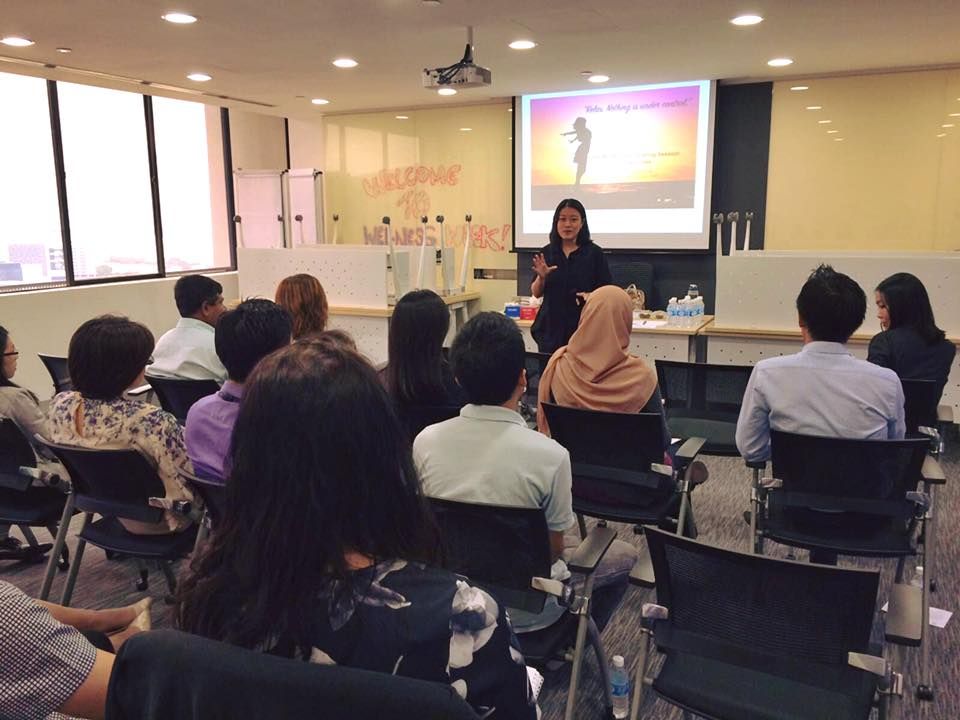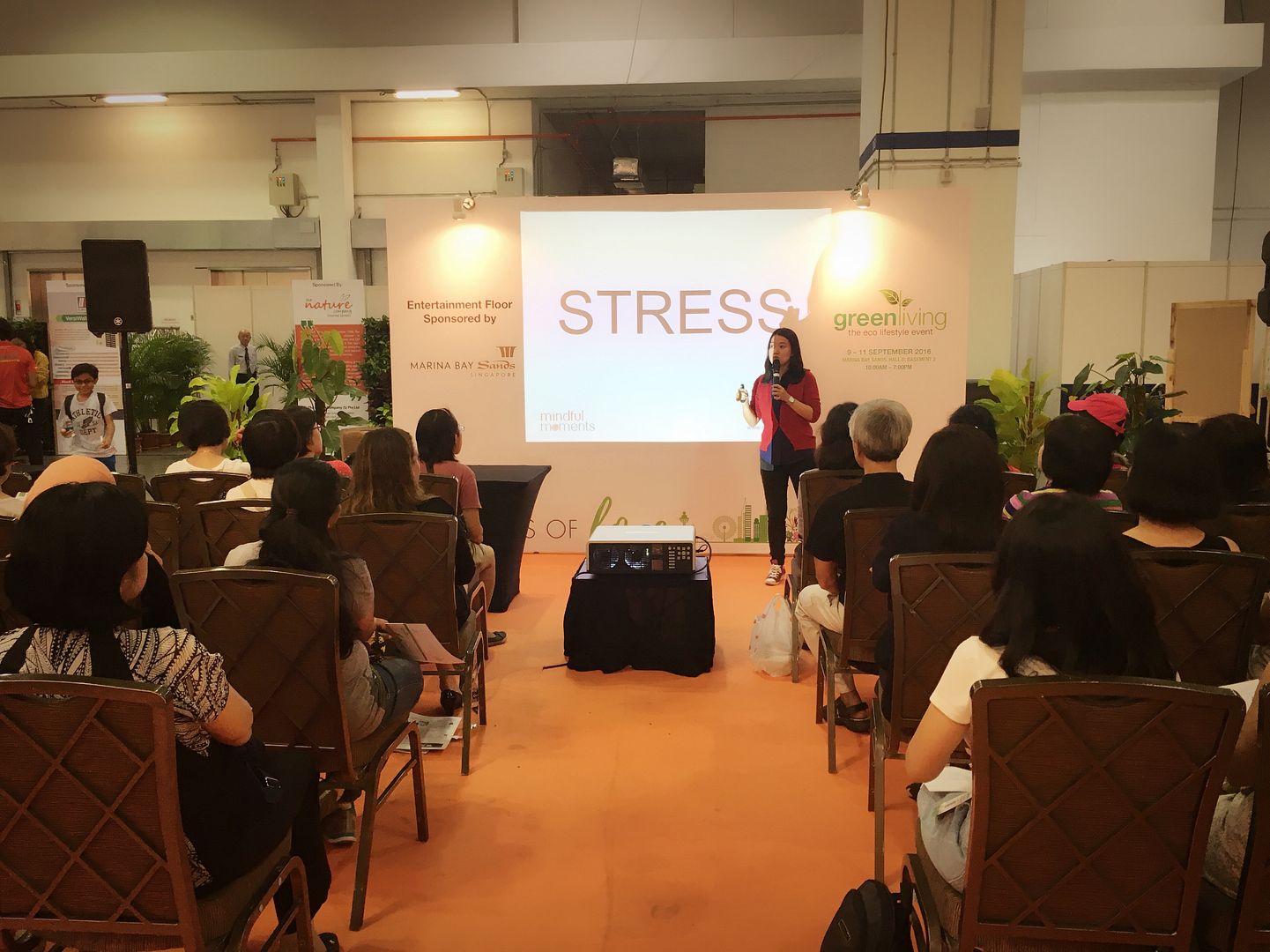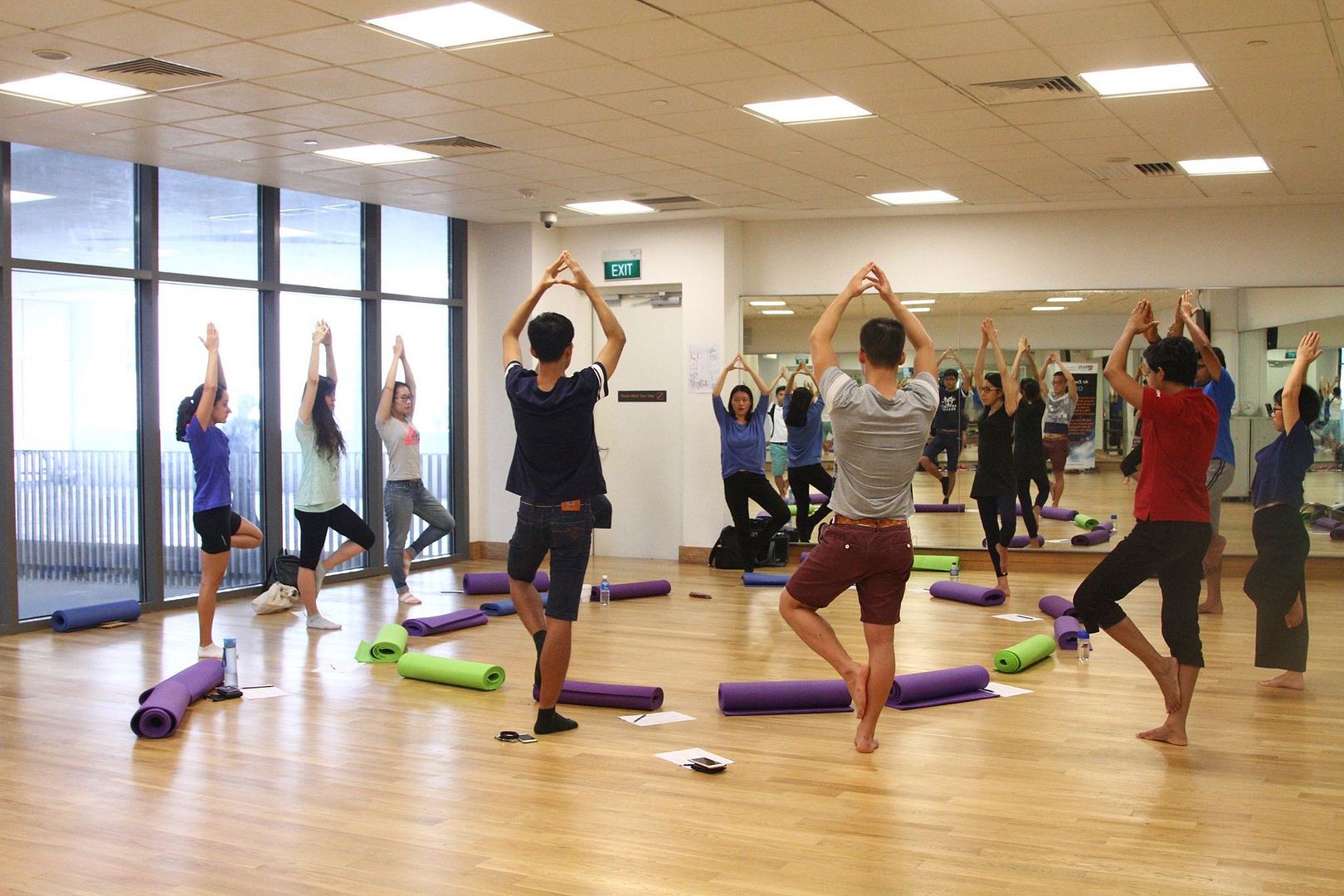How often do you find yourself eating and using your phone to scroll through your Facebook feed all at the same time, or planning your next meeting in your head while walking to the train station, only to realize that yo don't really know what went on around you? Most of us are going through everyday life passively without thinking or taking in the present moment, and many a time, you don't even remember what exactly happened around you that day.

Credit: Psychology Today
If you agree with the above, you may want to hear more about what mindfulness is about. We interview Mindfulness coach, Erin Lee, from Mindful Moments to find out what exactly mindfulness is, and how practising mindfulness can be beneficial to us.
1. Hi Erin, before we start, can you tell us a little more about yourself?

I am primarily a Mindfulness Coach. I give mindfulness training to the public, corporate, and private groups, as well as to individuals. I teach the classic 8-Week Mindfulness-Based Stress Reduction (MBSR) Program in my capacity as a Qualified MBSR Teacher. I am also a hypnotherapist and a lecturer at a local polytechnic, but I am focusing most of my time now on teaching mindfulness.
2. Why made you start Mindful Moments?
In my line of work, I have met people experiencing different kinds of unhappiness, each with their own story, their own pain, stress, and sadness. But the more I worked with them and listened to their stories, the more I was convinced that they were not alone with their unhappiness. Amidst our struggles, deep down we all shared the same desire for more peace and calmness. During one of the regular mindfulness meditation retreats I attended, I was struck by a story told by the teacher: there are four kinds of people in this world - the first kind are those running from brightness to greater brightness; the second kind are running from darkness to brightness; the third kind are running from brightness to darkness, and the fourth are running from darkness to even deeper darkness. The story was a reminder for us to always be the first two kinds of people - to always try to run towards brightness. I realised that I have had the privilege of meeting people who come from all kinds of places of darkness, and that I had the ability and conditions to help support them in running towards brightness. So I set my mind on starting Mindful Moments and to inspire mindfulness as a way of life. It doesn't matter what place of darkness each of us comes from; as long as we are practising mindfulness, we are running towards brightness together, one step at a time.
Many of us might still be relatively unaware of what mindfulness is, how it benefits us, and how to practice it. I advocate that mindfulness must be learned not as a technique but as a life skill, and practised not as a quick fix but as a way of life. So with the setting up of Mindful Moments, I hope to keep spreading awareness through mindfulness programs and training, in hope that more and more people will learn about this life-changing practice and incorporate mindfulness into their lives.

Explaining the benefits of mindfulness.
3. Because most of us are still new to the concept of “mindfulness”, can you tell us more about it?
Dr. Jon Kabat-Zinn who developed the 8-Week Mindfulness-Based Stress Reduction (MBSR) Program defines mindfulness as paying attention on purpose in the present moment, in a non-judgmental way. At Mindful Moments, we also see mindfulness as a personal and regular practice of being in the awareness of the present moment to enhance our well-being. It is a gentle practice that invites curiosity and self-compassion towards attending to our own body and observing the nature of the mind, which is usually responsible for much of our emotional pain and suffering.
4. What are the benefits of mindfulness?
Over the past few decades, mindfulness has become an increasingly studied discipline with many research-proven benefits. With a commitment to learning and sustained practice, it is not uncommon to experience positive changes such as increased self-awareness, better focus, cognitive flexibility, emotional resilience, greater empowerment, reduced anxiety and depression, reduction in stress-related symptoms, improved overall health increased compassion, and improved relationships.

5. How is mindfulness applicable to everyday life?
Many of us believe that mindfulness can only take place when we set aside a period of time to sit down on a cushion with our eyes closed and seemingly do nothing, and then we tend to think, who has time for that? This might come as a surprise, but a practice of mindfulness can last as long as the time needed to take a breath! The best thing about mindfulness is that it can be practised anytime and anywhere. It can be practised when we are taking a shower, having lunch, drinking a cup of coffee, or walking from one place to another. And when we cultivate the skills of mindfulness through sustained practice, the quality of our life often changes gradually and quite profoundly. We notice the negative habits and behaviours that seem to run our lives, we find ourselves more aware of our thoughts and emotions, and we become less reactive to the stresses and difficulties that come our way. Consequently, we might also notice positive changes to our relationships with other people.
6. How about yourself? How do you put mindfulness into practice in your everyday life?
As a Mindfulness Coach and practitioner, it is essential to establish and sustain a daily practice. You cannot teach mindfulness without practising it yourself! My personal practice includes the more “formal” practice of observing my inner experience via sitting and movements, as well as the “informal” practices in daily life - going about my daily routines and interacting with people with mindful, non-judgmental awareness. On top of my daily practice, I find that the best times to cultivate mindfulness skills are actually during the most stressful moments I have to face!
7. In your opinion, who should practice mindfulness?
Everyone can, and should practice mindfulness! What’s so amazing about mindfulness is that it is secular (non-religious) and thus can be practised by people of all ages and backgrounds. Being mindful is an innate capacity we all possess, and so anyone is able to cultivate mindfulness skills as long as we set the right intention and commit to practising. Whether you are feeling a great deal of stress and want to be more skilful with your responses to these difficulties, or wish to live a more balanced lifestyle and experience more calmness, or want greater self-awareness and gain clarity of mind, you will find mindfulness practice helpful and effective.

8. Correct me if I’m wrong, is mindfulness training similar to meditations?
There are numerous kinds of meditations out there - from chanting to sound and visualization work, and mindfulness can be seen as one of them. I think what differentiates mindfulness from other kinds of meditation is the fact that it is taught and practised in a secular way, it is very well-supported by scientific research, it is purely a form of awareness training, and it is highly applicable to our day-to-day life.
9. Lastly, any tips for our readers who wants to start learning and practising mindfulness?
Expose yourself to as many resources as possible! Read articles and books, watch introductory videos online, use an app on your phone, speak with mindfulness practitioners and teachers, attend talks and workshops, or find a local community to practice with. Research and find out how mindfulness can benefit you and change your life to further seal your commitment to learning it. Most importantly, take the first step to learn and practice it - you will have absolutely nothing to lose from the experience.
If you’re looking at getting properly trained in mindfulness, it is important to look for a program that is structured, research-based and taught by an approved facilitator in a group setting. The 8-Week MBSR program, in particular, is a good start and should help you learn the basics of mindfulness and give you more confidence in sustaining a long-term mindfulness practice. The MBSR program is usually open to adults aged 18 and above, and there are also specific mindfulness programs available for young children and teenagers.
Enjoy $100 off 8-week Mindfulness-based stress reduction program when you download Mindful Moments deal on Crunch app.

Website: www.mindfulmoments.sg
Email: erin@mindfulmoments.sg